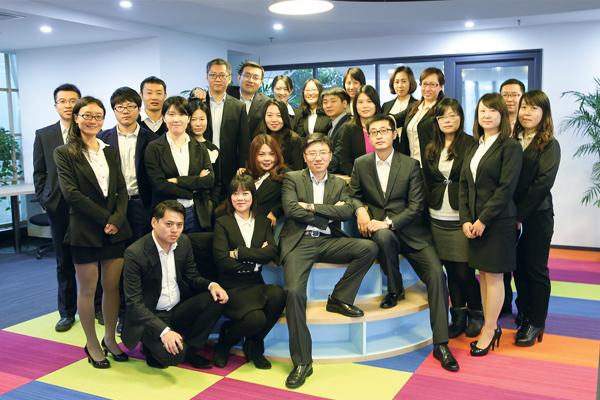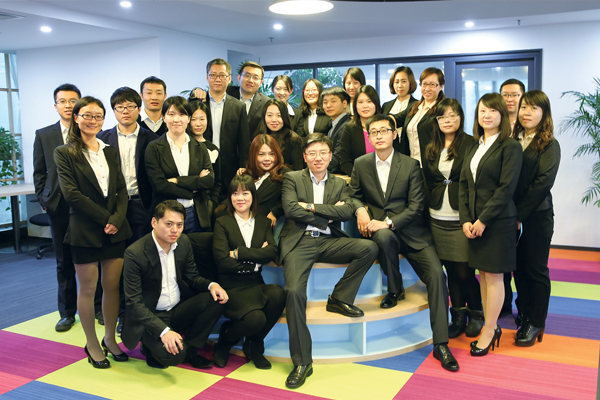
The last six years have been eventful for video-hosting site Youku. It was listed on the New York Stock Exchange (NYSE) in 2010 and merged with video-sharing site Tudou in 2012 to become Youku Tudou. In 2014, Alibaba purchased a strategic stake in Youku Tudou, and by early 2016, the e-commerce giant had completed the acquisition. Youku Tudou is expected to go private and be delisted from the NYSE after the buyout.
Youku Tudou was officially renamed the “Heyi Group” in August 2015. Today, Heyi’s legal team is 90-people strong – a far cry from the one-man team it had at the beginning. It is close to being a medium-sized law firm in terms of team size and the complexity of the work that it handles. Heyi group’s general counsel Pan Baiyu shares his insights with ALB’s Li Shangjing in this interview.
ALB: How has Heyi Group’s legal team grown together with the business, given the changes that the company has gone through over the years?
Pan: When I joined Youku in 2008, the company had fewer than 200 employees, and I was the only one in the legal team. Liu Dele, Youku’s president – who was my boss then and is still my boss now – said to me, “Come join us. You get to watch anime.” And so I joined the company.
Being the only one handling the legal work, I had a very heavy workload at that time. Thankfully, the company had a seasoned external lawyer, and this saved us from a lot of tedious work.
We began to build our own legal team in 2011, and the size of the team has since grown from one to 90. Youku Tudou’s legal team has extensive experience, participating in many cases and contributing to the establishment of rules in the Internet industry. The team is responsible for dispute resolution, contract risk management, intellectual property, copyright management and protection, policy research, capital markets and other business areas.
ALB: You witnessed the development of China’s online video industry. What was the path it took towards standardisation? What was the work carried out by Youku in terms of copyright protection?
Pan: The online video industry went through three development stages, namely: the stage of rapid development between 2005 and 2009, the stage of standardisation between 2009 and 2012, and the stage of high concentration since 2012. Launched in April 2005, Tudou was the first video website in China. In the heyday of the industry, there were more than 2,000 video websites in the country. The leaders in the earlier period were Youku, Tudou and Ku6, and the giants in the latter period are Heyi Group, iQIYI and Tencent Video.
The first effect of the emergence of the online video industry was the demise of pirated DVDs. The second was the cultivation of the copyright market in China for content including television dramas, movies, music, and web dramas. The third was encouraging the inclination among the masses to pay for online content.
After that, Youku and Tudou were listed in the U.S., much to the enthusiasm of U.S. institutional investors, who took almost all the money. We thought we had nothing to worry about and could relax after the merger, but the competition became increasingly fierce. After 2009, other mainstream websites began to attach importance to video content as well and they include Sohu in 2009, iQIYI in 2010 and LeTV and Tencent Video in 2011.
Content is king, and copyrights and patents are the most valuable aspects of Internet companies. We began to pay attention to copyright during the industry’s standardisation stage and began large-scale procurement of copyrighted content and copyright cooperation with foreign parties. At that time, Youku ranked first, be it in terms of market coverage, visibility or advertising revenue. There was a sense of placing a wager.
ALB: What were the reasons that prompted Heyi Group to go private? Have the goals been reached?
Pan: The valuation of Chinese enterprises in the U.S. tends to be low, especially in comparison with the A-share market. We are in the culture and entertainment industry, and it is a highly localised industry. It is not well understood by foreigners, much less recognised by capital markets.
Going private was an issue of company intent, corporate culture and also Alibaba’s needs. In no time at all, both parties brought about and completed the privatisation. We are set to bring even better online video services to Chinese around the world upon our return.
ALB: Of all these capital activities, including listing, financing, merging, privatising and relisting, which do you think is the most challenging in terms of legal work? What are the standards you use when selecting the external law firms to work with?
Pan: For years, we have been handling work related to capitalisation, including the listing in 2010, the placement in 2011, the merger with Tudou in 2012, the stake acquisition by Alibaba in 2014 and privatisation in 2015.
I never saw capital issues as complex. In terms of legal work, complexity actually lies in creating a new business model, establishing rules under the new model and having a clear understanding of the legal relationships involved.
We are lucky to have gone through the process of incorporation, overseas listing, strategic placement, retuning upon merging and finally, relisting. We always carry out thorough initial preparatory work, review the contracts and intellectual property of our cases, and undertake due diligence and commercial negotiations.
Regarding the appointment of external lawyers, we only appoint seasoned lawyers, first and foremost. Secondly, we only appoint those we are familiar with. These lawyers are the ones who have been with us on numerous capital projects. They know us well and have withstood the test of time.
ALB: Some say that Heyi will consider listing in China within three years after going private. Will the current uncertainties surrounding the registration system and capital market policies affect your original plan?
Pan: My boss told us many years ago that listing was not the objective. To us, being listed in the U.S. was only a beginning. To a mature business, listing or delisting is just a matter of choice that is made at the time in question. The primary goal of entrepreneurs is to be grounded, run their business well, serve their customers and fulfill their social responsibilities, rather than to cash in from stock market listings.
We are not overly concerned about considering the strategic emerging industries board or domestic listing. I’ve always believed that many will offer their help when the conditions are ripe, and everything will ultimately fall into place. This is what Youku has been doing all these years. We never do anything in a forced manner. Our first priority is to run the business well.
ALB: What are the new plans that follow the privatisation? What are the new legal risks that Heyi has to guard against?
Pan: The strategy we proposed for this year is “Beyond New York”. We will focus on the following upon our return: firstly, our content. We will introduce more high-quality video content. Our membership revenue will also continue to grow. At the same time, we will study new business models and future areas of earnings growth.
Our professional audit and legal teams will remain intact and we will continue to run a tight ship.
At present, we are seeing a relatively high concentration of litigation. There will be more and more lawsuits involving video websites. There will be video websites seeking legal accountability for infringements and piracy, as well as litigation stemming from competition between Internet companies. Litigation in itself is not something that should cause fear, as it is a matter of straightening things out. Continued regulation of the industry through litigation is in itself a very meaningful thing.
ALB: Legal teams in the Internet industry are getting stronger and bigger. What do you think are their main opportunities and challenges?
Pan: A word of praise is in order for those in the legal profession who handle Internet-related affairs. They are of highest professional calibre and contribute greatly to the company compared to those handling legal work in other domains. To some extent, we are like a medium-sized law firm and have the necessary competencies, be it related to capital operation or discipline inspection and supervision. I can confidently say that our Internet-related legal team can hold its own as our company undergoes its current transformation.
I feel that “culminating and expansive” best describe Internet-related legal work. We face new challenges every day, and we are the first ones to encounter new things, understand the legal relationships involved and sum up rules in the course of our practice, and these rules eventually become industry rules. We would take a year to cover the grounds that traditional industries would spend three years to cover, and three years to cover what others would need a decade to do so.
However, the main challenges that Internet-related legal work faces are lags and uncertainties in practice. In the market economy, anything is acceptable if there is no express provision in law about it. However, in practice, there are areas that are expressly prohibited in terms of legal work. Also, district courts may have differing views on the liability of platform-based companies. The lack of unified standards not only weakens the authority of the law, but also brings much confusion to platform-based companies.
This year, “Internet Plus” will be included in the Report on the Work of the Government. This is expected to boost recognition for the immense economic and social value of Internet Plus for traditional industries. Against the backdrop of major industry changes, there is a greater chance for Internet-related legal work to advance in the knowledge structure. The outlook is also promising in terms of establishing industry influence and promoting appropriate regulation and oversight, among others.



